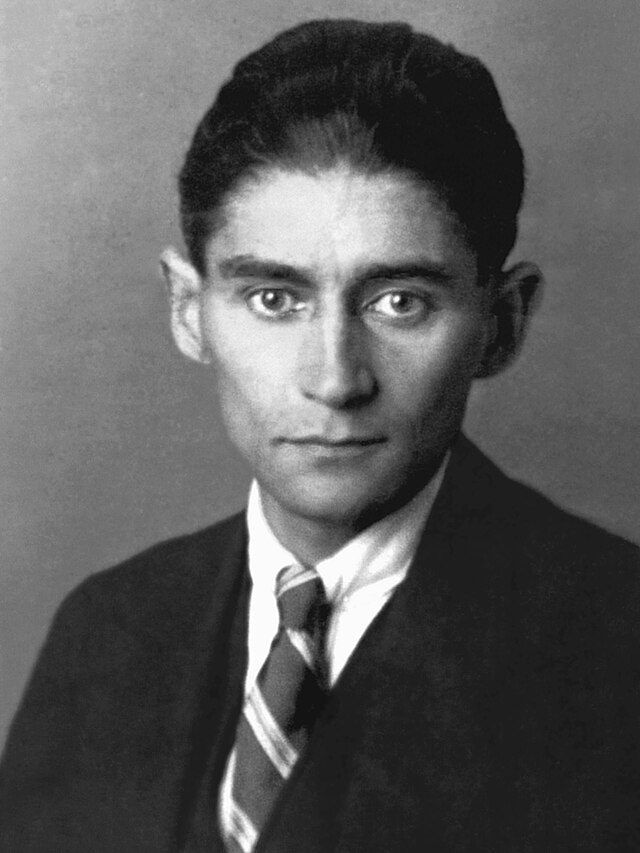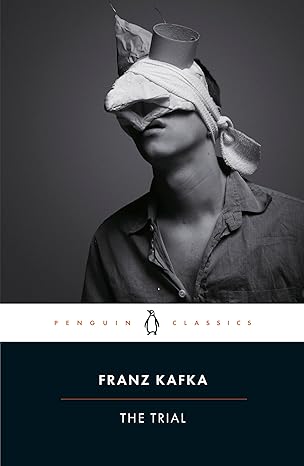Short Summary of The trial
The Trial by Franz Kafka is a surreal and existential novel that delves into themes of bureaucracy, guilt, and the absurdity of modern life. The story follows Josef K., a respectable bank clerk, who is unexpectedly arrested one morning without being told the nature of his crime. Despite being allowed to remain free and continue his daily life, Josef becomes entangled in a labyrinthine and opaque legal system.
As he navigates a series of strange encounters with judges, lawyers, and court officials, Josef grows increasingly paranoid and disoriented. The judicial process, with its vague rules and inscrutable proceedings, highlights a sense of futility and helplessness. Kafka paints a grim picture of a world where justice is inaccessible, and individuals are crushed by the weight of impersonal institutions.
The Trial is a novel which culminates in a haunting and ambiguous conclusion, where Josef, still unclear about his guilt, accepts his fate with a mix of resignation and defiance. The Trial is a powerful allegory about the fragility of human dignity in the face of an indifferent and oppressive system.
detailed Summary of the Trial by Franz Kafka
The Trial is a novel that explores themes of alienation, powerlessness, and the absurdity of modern life through the story of Josef K., a man caught in an opaque and nightmarish legal system. The novel is characterized by its surreal atmosphere, dark humor, and philosophical undertones.
The Arrest
The story begins on Josef K.’s 30th birthday when he is unexpectedly arrested in his boarding house by two warders, Franz and Willem. They inform him that he is under arrest but provide no explanation for the charges. Despite the arrest, Josef is allowed to continue his daily life. His initial reaction is one of defiance and disbelief; he assumes the whole event must be a mistake or some elaborate joke.
The Court and the First Hearing
Josef learns that the court handling his case operates from an attic in a tenement building. He attends a hearing, where he is met with a chaotic and absurd judicial system. The courtroom is crowded, and the judges are indifferent to his arguments. Josef gives a passionate speech criticizing the court’s incompetence, which earns him some admiration but does little to affect his case.
This first encounter sets the tone for Josef’s interactions with the court—a system that is both incomprehensible and impenetrable.
The Painter and the Labyrinthine Legal System
As Josef attempts to understand his case, he meets various characters who claim to have insight into the workings of the court. One such character is Titorelli, a painter who works for the court. Titorelli explains that the court’s decisions are arbitrary and offers Josef limited options: apparent acquittal (which isn’t real), protraction (delaying the case indefinitely), or submission (accepting his fate).
This interaction reveals the court as a self-sustaining bureaucracy, more concerned with its procedures than with justice. Josef’s sense of helplessness deepens.
The Priest and the Parable of the Law
In one of the novel’s most famous scenes, Josef visits a cathedral where a priest tells him the parable of the Before the Law. In the story, a man seeks entry to the Law but is perpetually denied by a gatekeeper. The parable is enigmatic and open to interpretation, reflecting the themes of futility and the elusive nature of truth.
The priest explains that Josef’s case is hopeless, and the court is omnipotent. This conversation serves as a philosophical climax, reinforcing Josef’s existential despair.
Josef’s Isolation and Downfall
As the trial drags on, Josef becomes increasingly isolated. His work suffers, his relationships deteriorate, and his mental state unravels. He tries to seek help but finds that no one can or will intervene. The system’s overwhelming power leaves him disoriented and resigned to his fate.
The Execution
The novel concludes with Josef being led to his execution by two men. They take him to a quarry, where he is forced to lie down. As one of the men stabs him with a butcher’s knife, Josef’s final words are a mix of defiance and resignation: “Like a dog!” The execution is both anticlimactic and horrifying, symbolizing the crushing weight of an indifferent and incomprehensible system.
Themes
- Bureaucratic Absurdity: The court system is a metaphor for the dehumanizing effects of bureaucratic institutions.
- Guilt and Innocence: Josef’s guilt is never clarified, reflecting the arbitrary and subjective nature of justice.
- Existential Alienation: Josef’s isolation mirrors the human condition in a modern, impersonal world.
- Powerlessness: The novel illustrates how individuals are powerless against vast, impersonal systems.
Conclusion
The Trial is an unsettling and thought-provoking novel that challenges readers to reflect on the nature of authority, justice, and the human condition. Josef K.’s journey through an unfathomable legal system is a timeless allegory for the struggles of individuals in a society dominated by opaque and oppressive structures.


